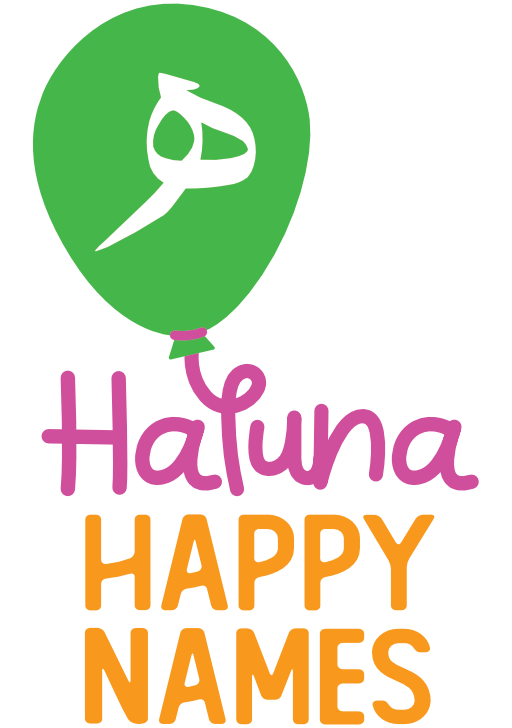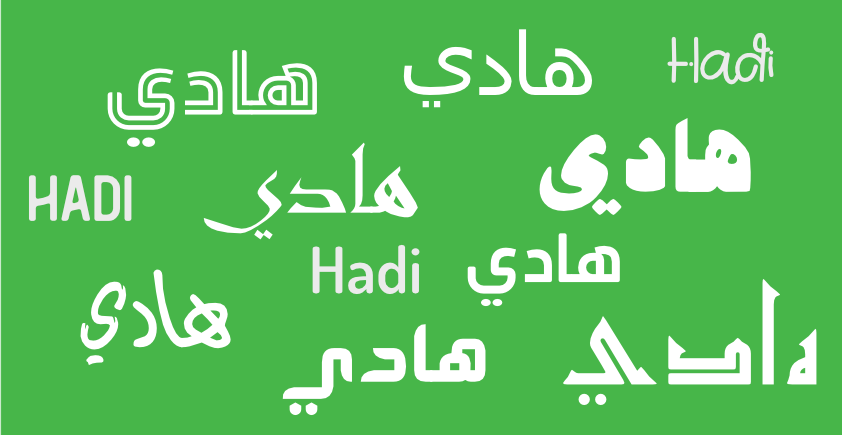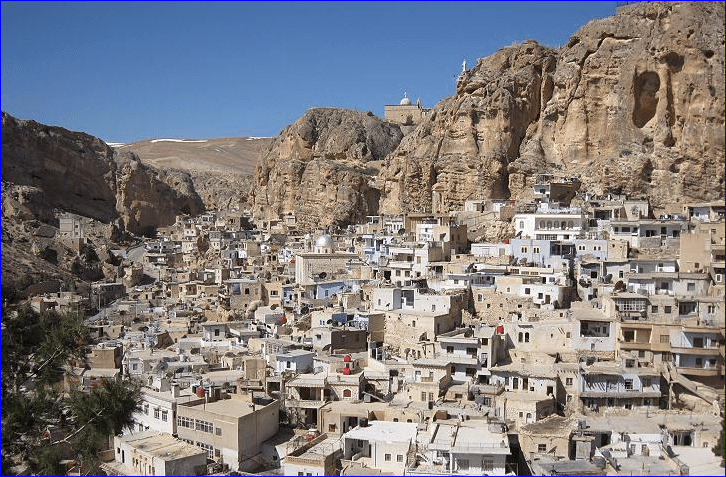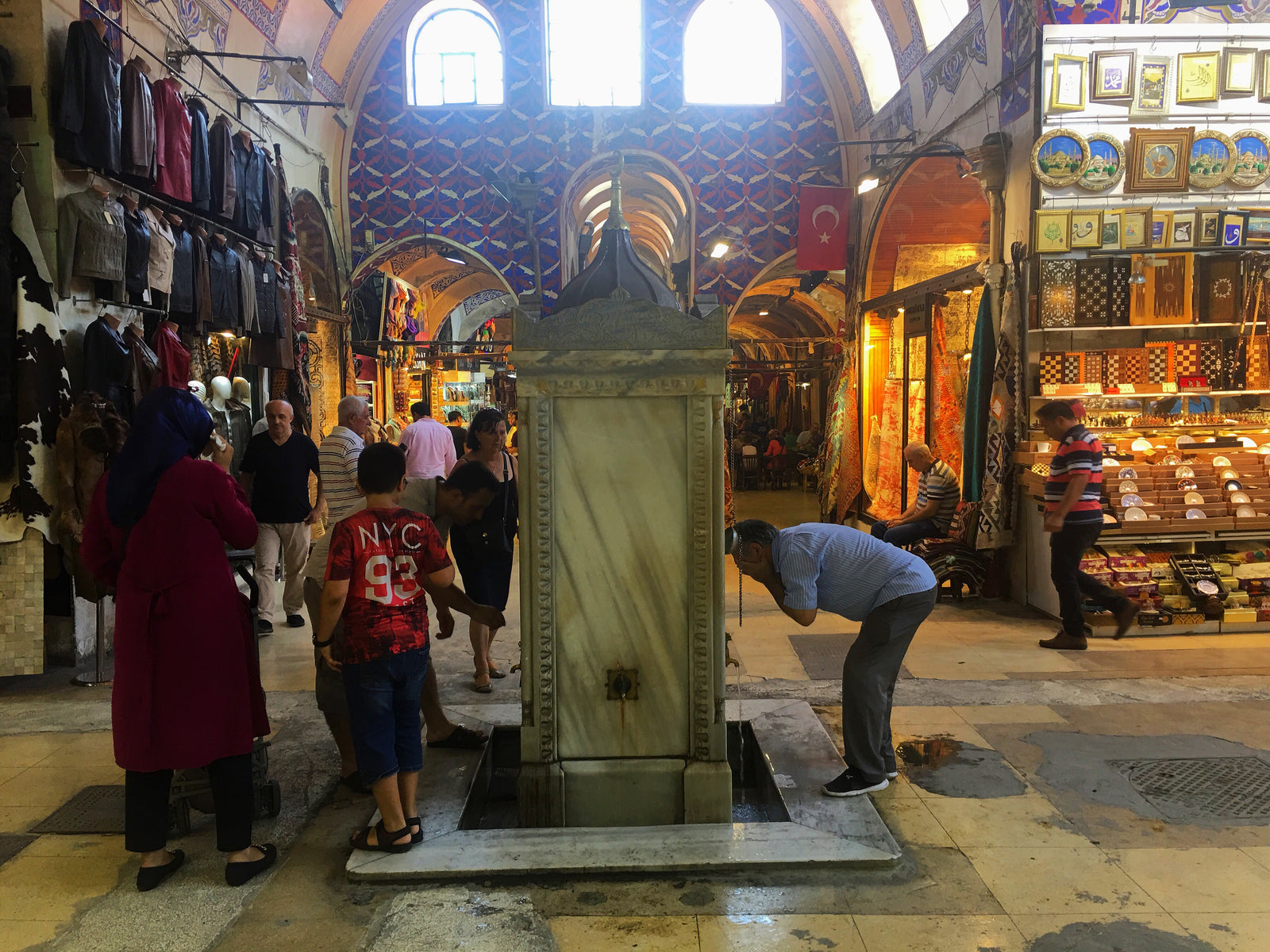Do you know that our first baby is called Hadi? So I have loved the name for 16 years. I suggested we call our baby Hadi, and my doting young husband agreed, despite his other plans. Our firstborn is just one reason why ‘Hadi’ is the perfect name to kick off the Haluna Happy Names ‘Arabic Names in English’ series. More importantly, I want to show you how Hadi (هادي) works really well in English if you are considering baby names because it ticks the boxes of meaning, spelling and pronunciation, all of which are important when choosing a suitable name.
How is Hadi written in Arabic?
First, let’s look at how the name is written in Arabic. It is just four letters: هادي . From right to left, that is ه (ha - a soft ‘h' sound, like in English) - ا (alif, the Arabic long 'a' sound, like ‘father’ or ‘wary’, depending on your dialect in Arabic) - د (dal - like an English 'd') - ي (ya - the Arabic ‘i’ or ‘y’ letter, which makes a long ‘ee’ sound here) .
Hadi is easy to spell
You’ve got a couple of spelling options when converting هادي into the Roman alphabet for use in English. I recommend ‘H-A-D-I’. Why?
- It’s a direct transliteration of the Arabic letters
- It’s easy to remember
- It looks ‘normal’ to an English reader
- Someone reading it aloud is unlikely to say it (very) wrong
Some people choose to write the name ‘Hady’. This is a typical spelling for people of Lebanese heritage, where for historical reasons spelling is influenced by French spelling patterns. My personal opinion is that ending in a ‘y’ runs the risk of Hady being pronounced like ‘shady’, which is further from the typical pronunciations of the name in Arabic. Putting an ‘i’ at the end is not too foreign for English readers (we are used to ‘spaghetti’, after all). If you really don’t want the ‘a’ in your son’s name to be short (to rhyme with ‘laddie’ or ‘Daddy’), you can add another ‘a’, making it ‘HAADI’. However Haadi looks pretty unnatural in English, which never normally uses a double ‘a’. The only common example I can think of is Ulaan Baatar, the capital city of Mongolia. But even that is also more traditionally spelled Ulan Bator. Hmmm. I digress!
Hadi is easy to pronounce
Pretty much any English speaker can say ‘Hadi’ - whether rhyming with laddie, or matching the ‘a’ in father, wary or shady. Sure, it may be an unfamiliar name, with some mistakes by people who haven’t seen it written and are hearing it for the first time. My Hadi sometimes gets people who don’t know the name calling him ‘Harry’ or ‘Eddie’ after asking him what his name is. But it’s not a challenge to get your tongue around, and keep saying it correctly, once you know it.
Hadi has a cool meaning
Hadi comes from one of the Islamic 99 Names of Allah, ‘al Hadi’, which means ‘the Leader’ or ‘the Guide’. The root word is the verb هدى ('hada'), meaning 'to lead someone on the right way’. This is the same root as for the word ‘hadeeya', Arabic for ‘gift’. If you are into giving your children aspirational names, then ‘Leader’ is a great choice - we particularly liked it for our first baby, hoping to have more than one child, so his younger siblings could follow in his footsteps. A related name is ‘Abdulhadi’. This is like many other Islamic names combining ‘Abd’ with one of the 99 Names of Allah. Abdulhadi means ‘servant of the Guide’.
Hang on - doesn't 'hadi' mean 'peaceful'?
I’m going to get a bit technical. If you know how to speak Arabic, you may know 'hadi' to mean 'calm' or ‘quiet’. That is correct, for colloquial speech. However, when you look at the spelling of the word for ‘quiet’ in Arabic, you find it has a hamza at the end (written هادئ). For non-Arabic speakers, a hamza is a glottal stop (like when an English person says 'what?' and drops the ’t’ at the end of the word). In daily Arabic that hamza gets left off, so the word for ‘quiet’ sounds just like Hadi meaning ‘Leader’.
Verdict
Hadi is an allover great choice for a boy’s name in English, even for people looking for a baby name with no connection to either Arabic or Islam. It combines an inspirational meaning with easy spelling and straightforward pronunciation. This may sound simple, but when you are looking for the best Arabic name for your new baby, checking all these boxes is a surprisingly tricky challenge, as future blogs in my Arabic Names in English series will show!
What's next?
Want to learn more about how to choose the best Arabic name for your bundle of cuteness? Sign up to receive my mini e-book that takes you through the steps to choosing a great Arabic name and avoid major regrets later. And if you liked this post and would like to learn about other Arabic names, browse the ‘Arabic Names in English’ series here - it is being added to all the time. Finally, if you’d like me to research and explain a particular name, share it in the comments below.






Leave a comment (all fields required)